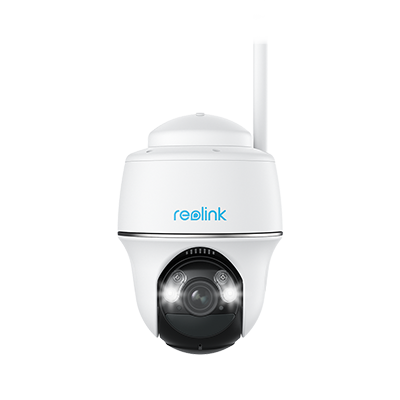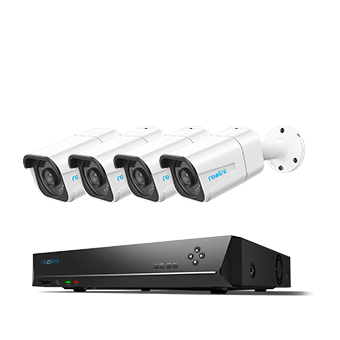Is It Legal to Post Security Camera Footage Online?

Wondering is it legal to post security camera footage online? In short, yes, it is legal to post security camera footage online as long as it does not violate privacy laws or other regulations. Users need to be cautious and responsible when sharing surveillance footage publicly.
Blurring faces and identifying details is often required. There are some circumstances where posting camera footage online serves justice or public safety. However, it is crucial to follow best practices and use cameras with local storage for easier online posting. Let’s take a complete look at it.
Legal Considerations for Posting Surveillance Camera Footage Online
Installing security cameras comes with the ability to record and access footage from those cameras. However, there are important legal considerations to keep in mind before posting any surveillance footage online. Let’s take a look at them.
Legality
The legality of sharing security camera footage online depends on whether it violates local regulations, especially privacy laws. For instance, California's Privacy Act prohibits the distribution of any recording of identifiable individuals without consent. New York also restricts sharing photos or videos of others for annoyance, alarm, or no legitimate purpose.
Generally, publicly posting footage without permission that reveals sensitive details about identifiable persons is illegal. Users need to assess if it infringes on reasonable privacy expectations. Political figures and celebrities also have additional protections limiting the publication of videos tracking their activities.
However, if the video contains no personally identifiable information or if consent was obtained from filmed individuals, sharing footage online abides by privacy legislation in most regions.
Blurring Faces or Other Information
To avoid breaking privacy laws, users can blur, mask, or edit faces or other identifying details from the video before posting it online. This preserves anonymity while still sharing the relevant visual information. Advanced cameras even offer built-in face-blurring features powered by AI that automatically detect and pixelate faces and license plates.
Manual editing before publication is also an option. However, it is a time-consuming process for longer footage. Users must be careful to anonymize all sensitive identity markers the footage may capture.
When Should Publish Security Camera Footage Online
There are some legitimate reasons for publicly sharing security camera footage rather than just privacy concerns. Some common examples include:
Public Safety Concerns
If the camera captures unlawful activities that pose a public safety hazard, like assaults or thefts, sharing the videos online can help apprehend the criminals faster. It also raises community awareness to take precautions.
Criminal Activities Investigation
Posting surveillance videos that capture illegal actions can aid police investigations and help identify/catch perpetrators if they are recognized online.
However, it is still vital to anonymize identities and details unrelated to the main incident before public sharing. Users should work with law enforcement first rather than take matters into their own hands.
Best Practice to Post Camera Footage Online
When posting security camera footage online is deemed necessary, the following best practices can avoid legal risks:
- Only share short, relevant clips instead of long, unedited streams.
- Blur/pixelate faces and license plates using manual editing or built-in camera features.
- Add captions/descriptions that provide context but don't make accusations.
- Work with local authorities and inform filmed individuals beforehand if possible.
- Avoid profanity, calls to harass suspects or vigilante behavior.
- Take down the video if requested by authorities or filmed parties.
- Store footage securely offline whenever needed to prevent leaks.
A classic example of proper online posting is a case where a laptop thief was identified publicly, but their faces are blurred. The footage helped authorities recognize and locate the criminal without violating privacy.
Best Security Camera to Save Footage for Online Posting
With the ubiquity of the internet and social media, it is easier than ever to share surveillance footage online. But this also raises the risk of accidentally leaking private videos.
The best practice for safely posting footage online is using security cameras that store video locally rather than in the cloud. Locally stored videos can be manually reviewed and edited before public sharing.
Best Wireless Surveillance Camera with Local Storage - Reolink Argus PT Ultra
A solid outdoor wireless security camera for home use is the Reolink Argus PT Ultra. It captures 4K video and has a rechargeable battery for flexible placement. Importantly, it has a microSD slot to store footage locally up to 128GB. There is also solar panel charging to complement the battery. Dual-band WiFi allows quick video previews and sharing.
So, blur any faces or details before manually transferring saved clips to share online. These grants control over what footage gets exposed publicly versus kept private locally.
4k 100% Wire-Free PT Camera
4K 8MP Ultra HD; 5GHz/2.4GHz WiFi; Rechargeable Battery & Solar Powered; 355° Pan & 140° Tilt; IP65 Certified Weatherproof; Clear Night Vision; 2-Way Audio; 122° Wide Viewing Angle.
Best Security Camera System with On-Site Storage - Reolink RLK-800B4
For businesses and large premises, a complete corded PoE security camera system with an NVR recorder is recommended. A great option is the Reolink 8-channel 4K PoE system RLK8-800B4. It comes with an 8-channel network video recorder that has 2TB HDD storage built-in.
This allows continuous recording 24/7 for all connected cameras, with all footage stored locally. Users can review and edit any necessary videos first before posting them online. The Reolink mobile app also allows remote access to the locally recorded footage. The system intelligently detects people and vehicles while capturing rich 4K video.
4K 8-Channel PoE Security System
4 pcs 4K Ultra HD Security Cameras; 2TB HDD 8-Channel NVR for 24/7 Recording; Person/Vehicle Detection; Plug & Play; 2 Network Solutions.
FAQs
Are security cameras an invasion of privacy?
Security cameras in public spaces are generally not an invasion of privacy. However, recording identifiable individuals on private property without consent can violate privacy laws. It depends on reasonable expectations - filming your own home's exterior is fine, but not a neighbor's bedroom.
Is security camera footage copyrightable?
Generally, yes, creators own the copyright on their surveillance footage. But facts like newsworthy events captured in public areas cannot be copyrighted. Identifiable individuals also have publicity rights restricting the distribution of videos with their likenesses.
What states are illegal to have hidden cameras?
Most states allow hidden cameras to record criminal activity on your own property. But consent from guests is required to film private living spaces or bedrooms. Several states, like Delaware, ban secret recordings by both parties without consent from those filmed.
Conclusion
Posting security camera footage online requires careful consideration of privacy laws. In many cases, sharing identifiable videos without consent is illegal. Users should blur or edit out faces and personal details before posting them publicly.
Cameras with SD card slots or NVR recorders enable safe reviewing and modification of footage first. Did you ever post security camera footage online? Share your experiences with us in the comment section below! Let's discuss together!
Search
Be in the Know
Security insights & offers right into your inbox


